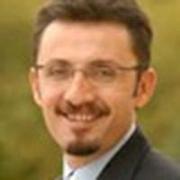Are the winds of change blowing for Kurdish policy?
Paylaş
Right after Iraqi President Jalal Talabani’s claim, last week, that the outlawed Kurdistan Workers’ Party, or PKK, will end its armed struggle, the Democratic Society Party, or DTP, has restarted to voice its proposal of "democratic autonomous republic".
The ruling Justice and Development Party, or AKP, is neither ignoring the need forÊa solution to the Kurdish issue nor are theyÊopenly talking about it. These developments led to questions whether or not the Kurdish policy is being modified?
Are Kurds being involved in a new process? What will be their new road map? What do theÊprominent DTP officials thinkÊabout it? These are the questions of many in the country.
"During the Nevruz celebrations, we are going to emphasize that neither the armed conflict nor the denial of existence of the problem will bring a solution. This is democratic autonomy that will lead us to a solution. This will be our slogan," Selahattin Demirtaş, the parliamentary group deputy leader of the DTP said while explaining his party’s position. In a sense, it’s a sort of "enough is enough, stop the bloodshed" call by the DTPÉ It may not be a new one but when considering its timing with Talabani’s claims, it gives the impression that it could turn into an achievable policy.
Yes but what does the DTP’s democratic autonomy mean? Actually it’s nothing new since it has been transformed from the "democratic confederalism" proposal of Abdullah Öcalan, imprisoned chieftain of the PKK. "The democratic autonomy refers to the legal binds of the different communities with the system in the state they belong to. It helps to assure the ethnic and national communities to get their fundamental democratic rights," explain Kurdish intellectuals. To make it clear, they underline that they don’t want the separation of the country, or bring a federal or a confederate structure. Furthermore, they note that they are not against the Turkish flag and insist that they want to live together in this country. Coupling election developments with a recent statement by President Abdullah Gül who said "there will be some surprises vis a vis the Kurdish problem," one can conclude that after March 29, we could find replies to the question of a policy change.
SECOND ARTICLE
Diyarbakır prison to become history
The Diyarbakõr Prison is well known for the tortures committed in its wallsÊafter the September 12 coup d’tat in 1980. 34 people were tortured to death in that period. It was believed that the roots of the PKKÊflourished in this prison in the early 80s. It’s still in Diyarbakõr but has become an ordinary prison.Ê
In his Diyarbakõr rally, Prime Minister Recep Tayyip Erdoğan has recalled these bitter days, wishing that they are never repeated. Kutbettin Arzu, the AKP’s Diyarbakõr deputy, is his party’s Diyarbakõr mayoral candidate. "I will destroy the Diyarbakõr Prison," he said, in an excited manner. "In place of it, I will built a museum and a park to democracy, peace and brotherhood.."
It’s not certain whether or not he will be elected but Arzu already took the initiative for the demolition of theÊprison and applied to the Justice Ministry.
THIRD ARTICLE
Too much respect for the electorate
With the exeption ofÊone political party leader, all the leadersÊwear the scarf of the football club of the town that they are visiting on the occasion of the local elections rally, a fashion started by Erdoğan and followed by the rest. The only exception is obviously Devlet Bahçeli, the leader of the Nationalist Movement Party, or MHP. He does not wear a coat either, despite the cold winter. He held one of his rallies in Kars, an eastern Anatolia town, when it was Ğ 5 degrees. His insistance on notÊwearing a coat made him sick for two days. When he had recovered, he was again seen in Nevşehir with just a jacket on him which just shows nothing will make him give up of his principles...
Paylaş








